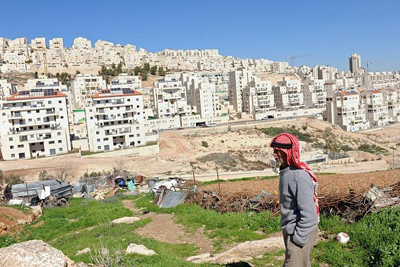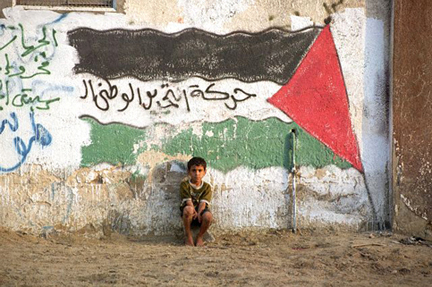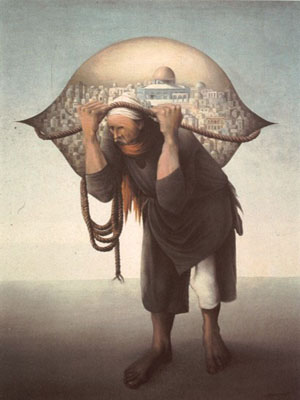
A Palestinian man walks on his property overlooking the Israeli settlement Har Homa in the Israeli-occupied West Bank; photograph from the Christian Science Monitor
Lob missiles in the direction of Tel Aviv, drop a bomb on a Hamas official, strap on a vest and blow up an Israeli bus, tear down Palestinian houses and build a wall, teach your children to hate the oppressor and get a symbolic upgrade in the UN: how can this seemingly intractable dilemma of “World of Warcraft: Land of Abraham” Israel vs. Palestine scenario ever get settled. One unilateral way is to settle it with yet more settlements. As The New York Times notes in today’s edition, the current Israeli government has their own kind of settlement in mind:
A day after the United Nations General Assembly voted overwhelmingly to upgrade the status of the Palestinians, a senior Israeli official said the government would pursue “preliminary zoning and planning preparations†for a development that would separate the West Bank cities of Ramallah and Bethlehem from Jerusalem. If such a project were to go beyond blueprints, it could prevent the creation of a viable, contiguous Palestinian state.
The development, in an open, mostly empty area known as E1, would connect the large settlement town of Maale Adumim to Jerusalem. Israeli officials also authorized construction of 3,000 housing units in parts of East Jerusalem and the West Bank.
The Obama administration, which backs virtually everything Israel does, is barking about how this is unhelpful, stopping short of the political bite that could be called condemnation. But some American diplomats see the danger in this mood: “This is not just another few houses in Jerusalem or another hilltop in the West Bank,†said Daniel C. Kurtzer, a former American ambassador to Israel and Egypt. “This is one of the most sensitive areas of territory, and I would hope the United States will lay down the law.â€

That law has about as much chance of being laid down in the current political climate as the law west of Pecos in America’s own landgrab days. Continue reading That settles it






